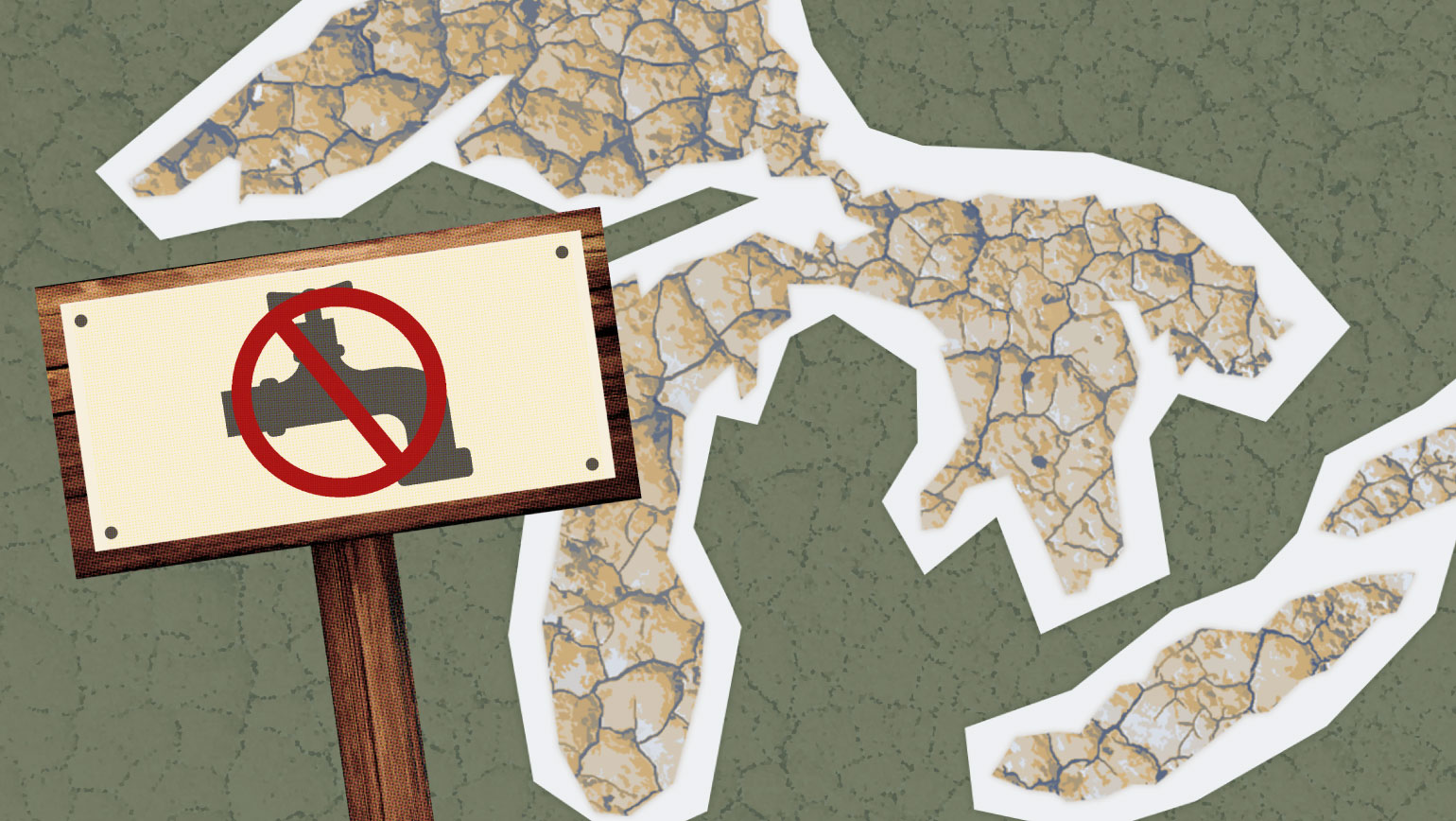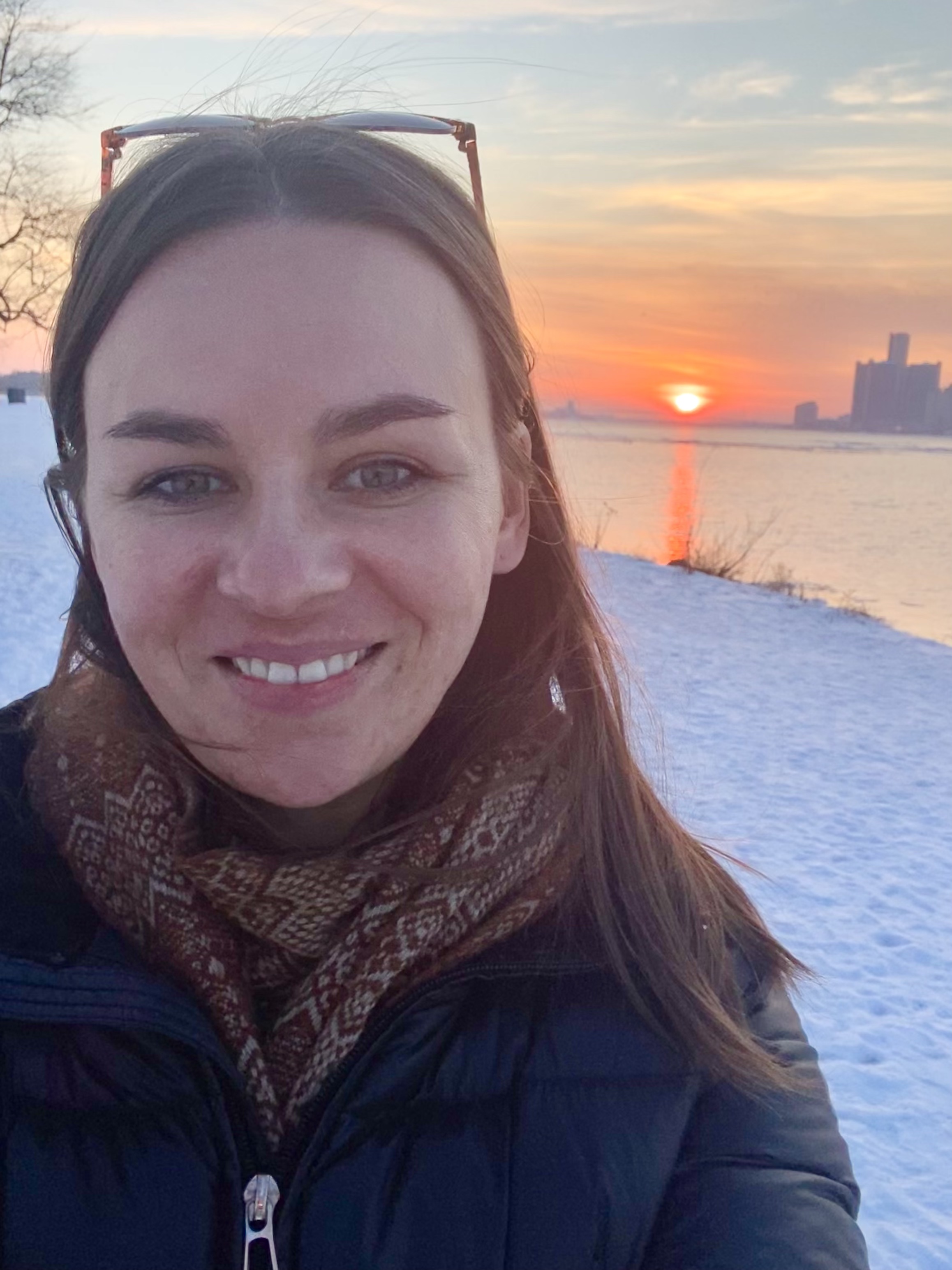Water scarcity in the Great Lakes State

Colleen Linn has structured her entire graduate school experience at Wayne State University around understanding perceptions of clean water scarcity in Michigan—but the issue wasn’t always top of mind.
“I grew up in the Upper Peninsula close to Lake Superior and would spend as much time next to the water during the short summer months as possible,” she says. “My grandfather was a biologist on Isle Royale National Park and my dad also works for the park service. It was always relayed to me how special and important these spaces were. It wasn’t until I moved downstate that I realized not everyone has equal access to them, nor the basic amenities society relies on that come from the natural world.”

When it came time for undergrad, Michigan Tech University was close to home and seemed the natural choice.
“I wanted to study something that explored human social relations and why people do what they do. My friends and fellow students at Tech (a very engineering-oriented university)—the brilliant humans that they are—were all interested in inventing technologies, creating businesses and protocols that could improve the lives of others. But I wondered how you can efficiently do that without fully understanding the people and social landscape of those you intend to help.”
She earned a bachelor’s in anthropology and later moved to Lansing to canvass for Clean Water Action, gathering support for bills aimed at reducing pollution to the Great Lakes by minimizing coal-fired power plants and increasing reliance on alternative energies.
“It was amazing to me how many people weren’t supportive of these measures,” she says. “Eventually, I became less interested in telling people why they should support these bills and more interested in understanding why people held negative views about them in the first place.”
Then all within the span of about three years, the Flint Water Crisis, Detroit water shut-offs, and dangers surrounding toxic levels of PFAS—chemicals found in common home products such as nonstick pans (e.g. Teflon), food packaging, waterproof jackets, carpets—in our groundwater made national headlines.
It inspired Linn to enroll in graduate school at Wayne State where she could conduct research and learn more about the cultural, social, and political ideologies that influence water scarcity in Michigan.
“It seemed the perceived water security I thought we had in this state was almost literally crumbling as I started grad school,” Linn says. “In the field of anthropology, scholars were discussing the frailty of water systems in the U.S. that were once heralded as proof of a ‘modern’ and ‘advanced’ society.
“It especially gutted me that in a state surrounded by fresh water, people were not always able to access it for the most basic needs. It became clear that resource abundance does not equate resource security, which signaled that there was a cultural dimension to these issues that needed to be explored further.”
These issues became the crux of her research. She joined the T-RUST program designed to prioritize interdisciplinary research that focuses on urban sustainability, and in 2018, she earned her master’s in anthropology and continued on to the Ph.D. program.
Currently, she’s studying how rural well owners navigate drinking water concerns related to PFAS.
“More than a million residents in Michigan get their drinking water from wells, but groundwater in Michigan is a very unprotected resource. Not many people realize the health of the Great Lakes are affected by the quality of groundwater.”
Linn seeks to understand how the state is educating the public on PFAS and how affected residents are making sense of contamination.
The cultural moment demands legislators that better consider the economic, environmental, and health of the communities they serve, Linn says. “Folks want environmental protection and economic security—the two do not have to be mutually exclusive.”
Author: Kristy Case, web/editor, Graduate School